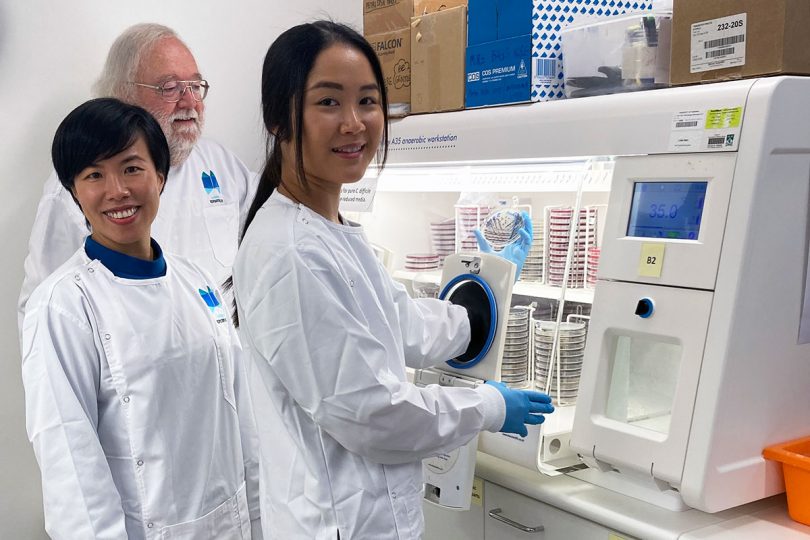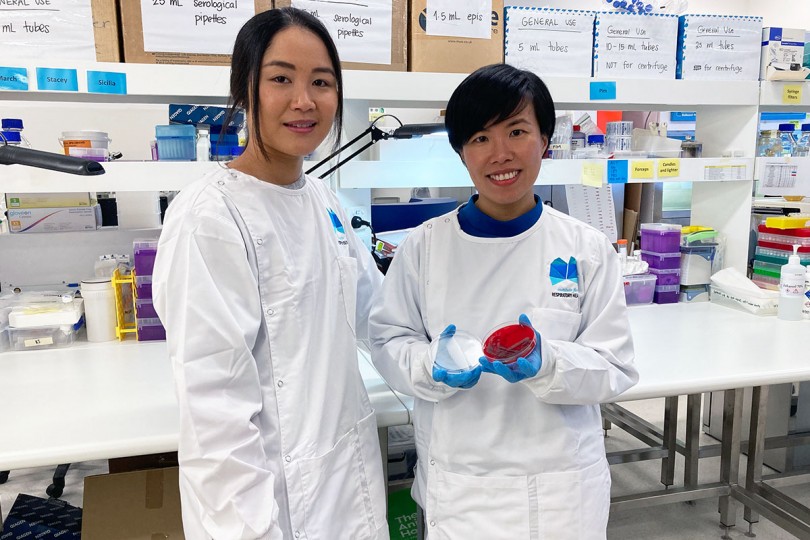Screening for deadly superbug could save CF patients’ lives

A Conquer Cystic Fibrosis study undertaken by a team of researchers led by the Institute for Respiratory Health has highlighted the need for improved screening to stop the overuse of antibiotics to treat a deadly superbug that could be fatal to cystic fibrosis (CF) patients.
Clostridium difficile (C.diff) is a superbug that can cause diarrhoea and colitis, a serious inflammation of the colon. While it rarely causes infection in healthy people, it can be life-threatening for people with cystic fibrosis – an inherited lung disease, which can lead to coughing fits, breathing problems and serious lung infections.
CF patients are more vulnerable to this superbug because their immune systems are generally weakened.
As they regularly use antibiotics to manage chest infections, taking them can upset the normal balance of their gut bacteria. Without enough healthy bacteria to keep it in check, C. diff can quickly grow out of control releasing toxins that attack the lining of the intestines. Frequent hospital visits also expose patients to C. diff which survives rigorous disinfection.

“The main focus of our research study was to reduce the health risks for CF patients when hospitalised,” Dr Anna Tai from the Institute for Respiratory Health said.
“We set out to explore how many CF patients carry C. diff, their risk factors for infection and whether there is evidence of hospital-acquired infection by this deadly superbug.
“We also wanted to establish a biobank of stool samples to continually help improve our understanding of the bacteria.”
“30 per cent of CF patients are silent carriers of a toxin-producing strain of the superbug but do not experience any symptoms. The catch is these patients can wrongly be prescribed with antibiotics when sick, which can then make them extremely ill.”
Dr Tai and her team also found that 30 per cent of patients with typical symptoms such as constant diarrhoea and who return a positive stool test for the bug will be diagnosed as having the infection. However, what isn’t tested is whether the strain of C.diff produces toxins. If toxins aren’t present, patients don’t need to be treated with antibiotics.
“Because we’re not testing or screening for C. diff toxins in CF patients, we’re overprescribing patients excessively with antibiotics that could be fatal,” said Dr Tai.
“Improved C. diff screening methods for CF patients who are hospitalised should be undertaken despite whether they present with symptoms or not. We also need more reliable tests and better treatment guidelines. These actions would reduce the risk of developing illness from the deadly superbug.
“Reassuringly, there wasn’t evidence of hospital acquired infections.”
Conquer Cystic Fibrosis have provided further funding for the research team to improve testing for this potentially lethal superbug.
In addition to the Institute, the research team includes WA Adult Cystic Fibrosis Centre, Sir Charles Gairdner Hospital, The University of Western Australia, Edith Cowan University, Murdoch University and PathWest Laboratory Medicine.